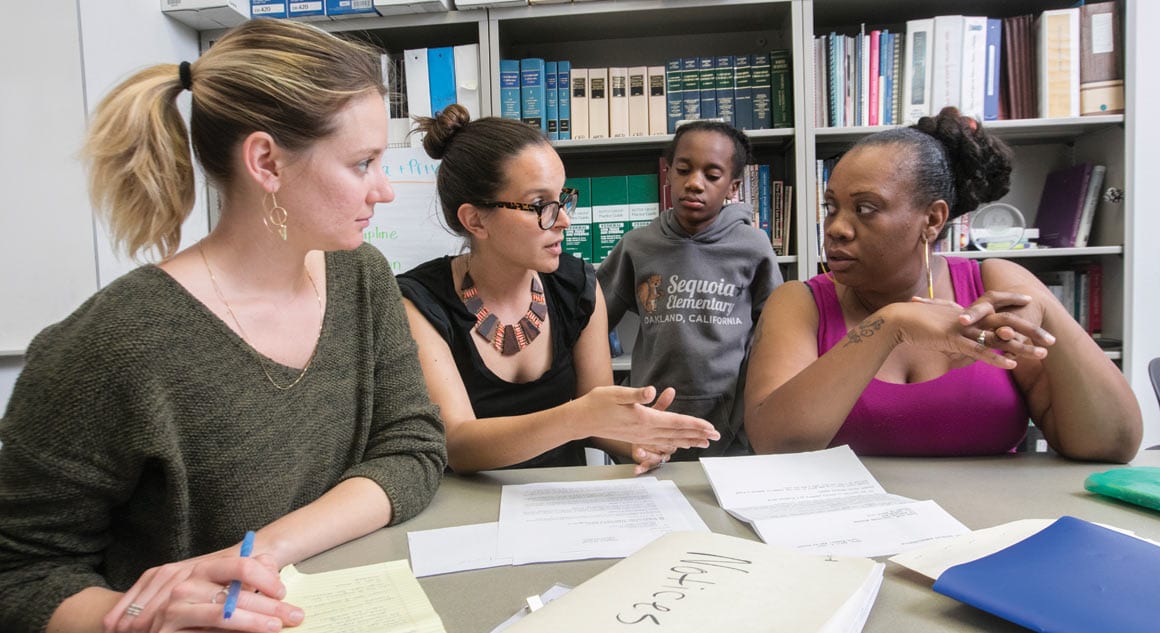
The first year at most law schools follows a predictable template: mandatory, lecture-based courses in large classrooms filled to capacity. Berkeley Law breaks that mold, supplementing foundational courses with something few other schools match—the chance to work with clients right away.
The unique vehicle for this opportunity: the Student-Initiated Legal Services Projects, more than two dozen pro bono endeavors founded and operated by students. Each project recruits supervising lawyers and enlists students to assist underserved communities with issues such as immigration, foster care, and veterans’ assistance. Participating students become more attuned to their communities—and more attractive to legal employers.
“I wanted to get out of the classroom and immerse myself in direct client interactions within the criminal justice system,” says Lilliana Paratore ’17. Working with the Post-Conviction Advocacy Project, which trains students to help long-term prisoners gain release, she successfully argued for granting a client’s parole.
Because indigent prisoners often receive inadequate representation from parole board-appointed lawyers, students can play a vital role. Madeline Bailey ’16 says co-directing the project was “the most inspiring aspect of my law school experience.”
Another inspiring initiative, the Workers’ Rights Clinic, advises lowincome workers facing employmentrelated legal problems. Tackling issues such as wage theft, sexual harassment, and workers’ compensation, students
confer with clients and supervising attorneys to identify possible remedies. Students also represent clients in unemployment insurance hearings, where the clinic has a near-perfect record. “We learn the many paths lawyers can take to address workers’ rights, including community education, policy advocacy, and impact litigation,” says co-director Scott Templin ’17.
The Karuk-Berkeley Collaborative serves a different marginalized community: Native Americans. The group helps the Karuk Tribe of Northern California with natural resource management and intellectual property issues, such as assessing the rights of mining claimants on public lands and addressing trademark and copyright questions regarding use of the tribe’s name, symbols, and practices.
“I gained a valuable, more holistic view of the legal process and a greater perspective on the legal tools used in advocacy,” says Hayley Carpenter ’16. “It’s not always the best approach to sue someone.”
—Andrew Cohen
